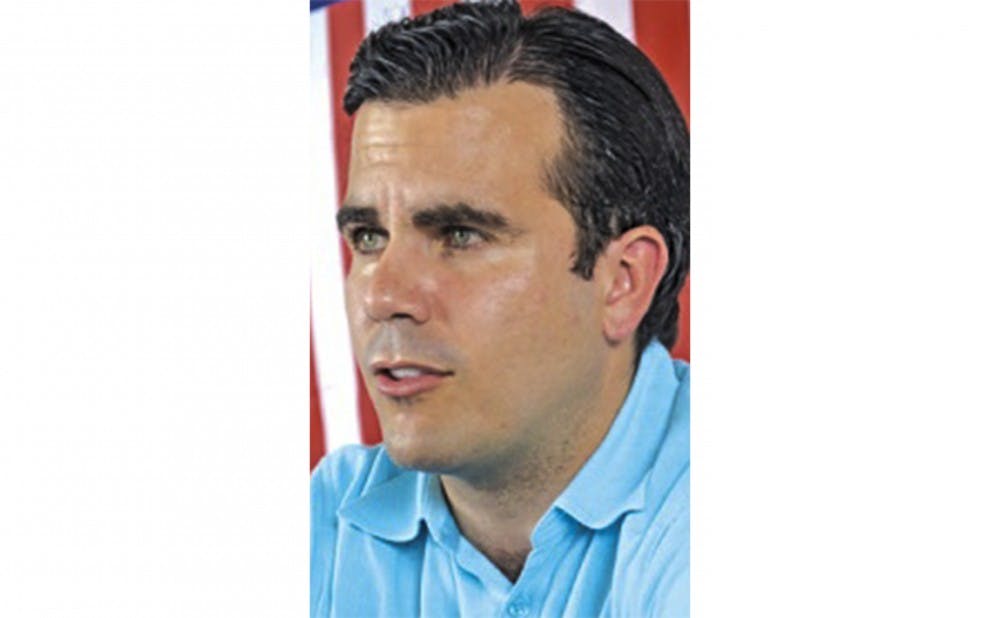Ricardo Rosselló Nevares, a former neurobiology researcher at Duke, was recently sworn in as the new governor of the Commonwealth of Puerto Rico.
Roselló worked in the Jarvis Lab at Duke conducting stem cell research. He has earned several awards for his published work, including recognition from the International Society of Neurobiology and an award from the Biomaterials Conference. But entering his first term as governor, Rosselló will encounter very different challenges, especially given problems with the Puerto Rican economy.
The Commonwealth currently faces a large-scale debt crisis, and significant budget cuts are expected. Last June, Congress passed legislation creating a federal oversight body to help restructure the debt, but Rosselló was skeptical. He has insisted that any solution should include Puerto Rican statehood.
"Ricky was a very hard working person," wrote Tony Zimmerman, a former Jarvis Lab manager, in an email. "It seemed like he was always in motion, moving back and forth between our main lab and other labs as he worked on his project."
Zimmerman noted that a scientific background often provides good training for political office, because conducting research requires careful observation and data collection prior to making a conclusion. Such activities ensure that a person makes an informed decision based on evidence, and not speculation, he added.
"[Rosselló] has the ability to view many disparate pieces of information and put them together in one big picture," Zimmerman wrote. "I saw him do this when he worked in our lab and he was able to connect several projects that had different paths into a common goal. This will help him and the people of Puerto Rico."
Rosselló's father—Pedro Rosselló—also moved from being a physician to politics, Zimmerman noted, showing Rosselló that "he too could pursue elected office from a science background."
As governor from 1992 to 2001 and part of the New Progressive Party, Rosselló was known for his anti-crime campaign, which enlisted the Puerto Rico National Guard to help police officers combat a burgeoning crime wave. He was also well-regarded for implementing a new healthcare system that provided healthcare insurance to nearly 100 percent of the population.
"Ricky always did show an interest in politics, even as he was working on scientific questions. At that time, he mostly concentrated on the issue of statehood for Puerto Rico and did not overtly mention any wish to be elected," Zimmerman wrote. "But there was already a movement back in Puerto Rico to encourage him to run for governor, and of course that is a great job to have if you are interested in achieving a big goal like statehood."
Rosselló also made his mark as a mentor, said Rui Dai, Trinity '13 and one of Rosselló's mentees in the Jarvis Lab. Dai said the connections Rosselló developed at Duke provided him with access to innovation in various areas, including technology and biologics.
"Duke is a great melting pot of different ideas, cultures and people, especially in the Medical Center where Ricky did research in neurobiology," Zimmerman wrote. "I think being exposed to the many different people and viewpoints that you find at Duke is a great advantage if you are going to lead, and the exposure can help open your mind to broad possibilities."
Rosselló supports the "Tennessee Plan” as a mechanism of getting Puerto Rico statehood. The term refers to actions Tennessee took in 1796, voting internally for immediate statehood and putting pressure on Congress to accept them as a state.
Statehood has been a contentious topic in Puerto Rico for decades—referendums on the issue were held in 1967, 1993, 1998 and 2012. The latter was the first time voters opted for statehood, indicating shifts in public opinion, even though the referendum was non-binding and Puerto Rico remains a commonwealth.
The initiative faces an uphill battle. Puerto Rican Representative Pedro Pierluisi introduced to Congress in 2015 the Puerto Rican Statehood Admission Process Act. Had it passed, the bill would have allowed Puerto Rico to hold a binding referendum on statehood and become a state.
Despite these difficulties, Zimmerman noted that Rosselló will continue pushing ambitious projects as governor, and perhaps in other positions of power down the road.
"When you get the know Ricky you can immediately tell that he is an ambitious person," Zimmerman wrote. "I wouldn’t be surprised if he were to run for president one day."
Editor's note: An earlier version of this article used an incorrect name to refer to Rosselló. The Chronicle regrets the error.
Get The Chronicle straight to your inbox
Signup for our weekly newsletter. Cancel at any time.

